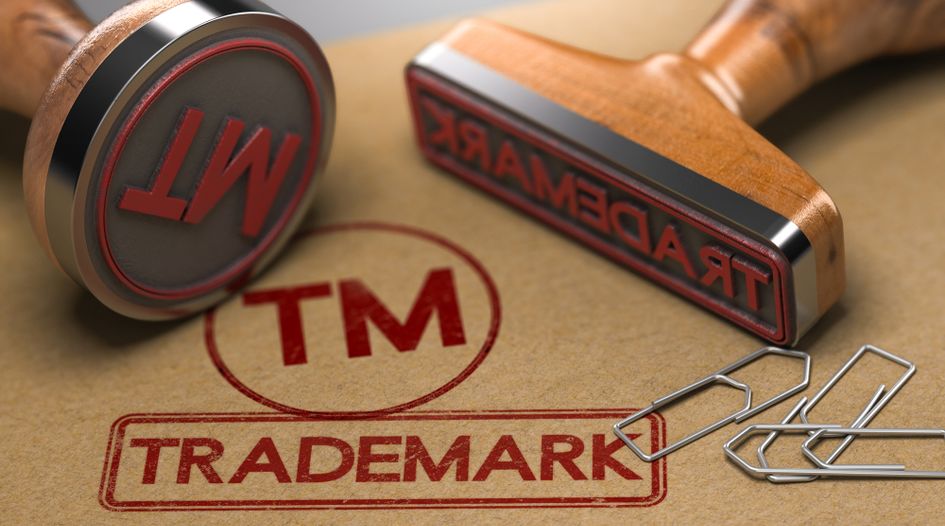Plaintiffs’ subjective intentions underlined in infringement counterclaim ruling

A decision rendered by the Putuo District Court of Shanghai in October 2022 has been freshly published by IPHouse, bringing it centre stage once more. In this, court dismissed a trademark infringement suit and partially upheld the defendant’s counterclaim by awarding 70,000 yuan in attorney fees. This decision is a crucial one because it highlights that the courts are paying increasingly close attention to plaintiffs’ subjective intentions.
Case details
Shanghai Yi Kun Building Materials is the exclusive licensee of the 樱花 & DEVICE trademark (the Chinese characters mean ‘cherry blossom’), which is registered in Class 19 (refractory materials).
Shanghai Yi Kun Building Materials

Shanghai ABM Rock Wool is the owner of the 樱花 trademark, which is also registered in Class 19 but for rockwool products. These two Chinese characters are the same as those appearing on Yi Kun’s mark.
Shanghai ABM Rock Wool

On 13 September 2021, Yi Kun sued Shanghai ABM Rock Wool and its subsidiary before the Putuo District Court of Shanghai, alleging that ABM’s use of the mark 樱花 on its rockwool products infringes upon Yi Kun’s 樱花 & DEVICE trademark and requesting cessation of trademark infringement, destruction of infringing goods and damages of 1 million yuan.
ABM categorically denied the infringement allegations. First, it argued that rockwool products are not refractory materials even if they both require a fire resistance test. Second, ABM showed that the two trademarks are not similar: Yi Kun's mark is a device representing a cherry blossom – with the two Chinese characters occupying a very small part of the space – while ABM's trademark is made up of only these two characters. Therefore, ABM not only denied any wrongdoing but also responded with a counterclaim for its attorney fees (100,000 yuan) and requested that Yi Kun be responsible for the legal costs.
The court decision
The court sided with ABM on both fronts.
On the infringement matter, the court found that ABM uses its registered trademark with the product name "Rock Wool" prominently displayed on the goods designated by the registration, which constitutes proper use. The court then held that even if rockwool products undergo a fire resistance test, which is a common feature with refractory products, they do not belong in that category. Therefore, trademark infringement could not be established.
With regard to ABM's counterclaim, the court decided that Yi Kun had abused its right to sue, based on the following findings:
- Yi Kun had intentionally isolated the ‘樱花’ part of its mark and used this sole element on rockwool products, which are not even designated by the mark; and
- Yi Kun had attempted – and failed – to register marks similar to ABM’s 樱花 trademark, showing an intention to freeride on ABM’s goodwill.
Further, the court noted that in June 2020, Qingpu District Administration for Market Regulation of Shanghai had imposed a 50,000 yuan fine on Yi Kun for the infringing use of ABM’s 樱花 mark, and Yi Kun had not challenged the decision. Finally, the court found that by using only one part of its registered trademark (without the device representing a cherry blossom) on its own products, Yi Kun was not actually using its mark as it is, as outlined in the Trademark Law, but was using a sign that was almost identical to ABM’s trademark.
In essence, the court found that Yi Kun had weaponised the suit to disrupt its rival’s business operations, thus breaching the principle of good faith. This caused prejudice to ABM’s legitimate interests, wasted judicial resources, undermined judicial authority and constituted abuse of rights.
The court awarded ABM the attorney fees of 70,000 yuan. The decision has now entered into force.
Analysis
The court was looking at a situation that the Supreme People's Court mentioned in its Judicial Interpretation of April 2008 about conflicts between registered trademarks and prior rights. According to Article 1 of the interpretation, a court shall not accept an action initiated by the owner of a registered trademark against another registered trademark and shall direct the plaintiff to request that the accused mark be invalidated by the administrative authority. There are only two exceptions to this rule:
- where the said trademark is significantly modified; or
- if the mark is used on goods other than those approved by its registration.
This is why the court insisted that the defendant was using its trademark exactly as registered and on the very products for which it was approved.
The logical consequence could have been a straightforward dismissal and a recommendation to file an invalidation application, but the court wanted to sanction the plaintiff's attitude. The infringement claim and abuse of rights were fully examined.
There is a key lesson to be taken from this case. The courts are paying closer attention to plaintiffs’ subjective intentions and are drawing clearer distinctions between trademark owners that legitimately believe that their trademarks are being infringed (although a court may still not find infringement and dismiss the case), and those that use their rights in bad faith against competitors.
IAM recommends
Valentino decision unifies conflicting interpretations of well-known trademarks
Keys to success in trademark litigation
Filing trademarks in China: key steps for foreign applicants
This is an Insight article, written by a selected partner as part of IAM's co-published content. Read more on Insight
Copyright © Law Business ResearchCompany Number: 03281866 VAT: GB 160 7529 10

